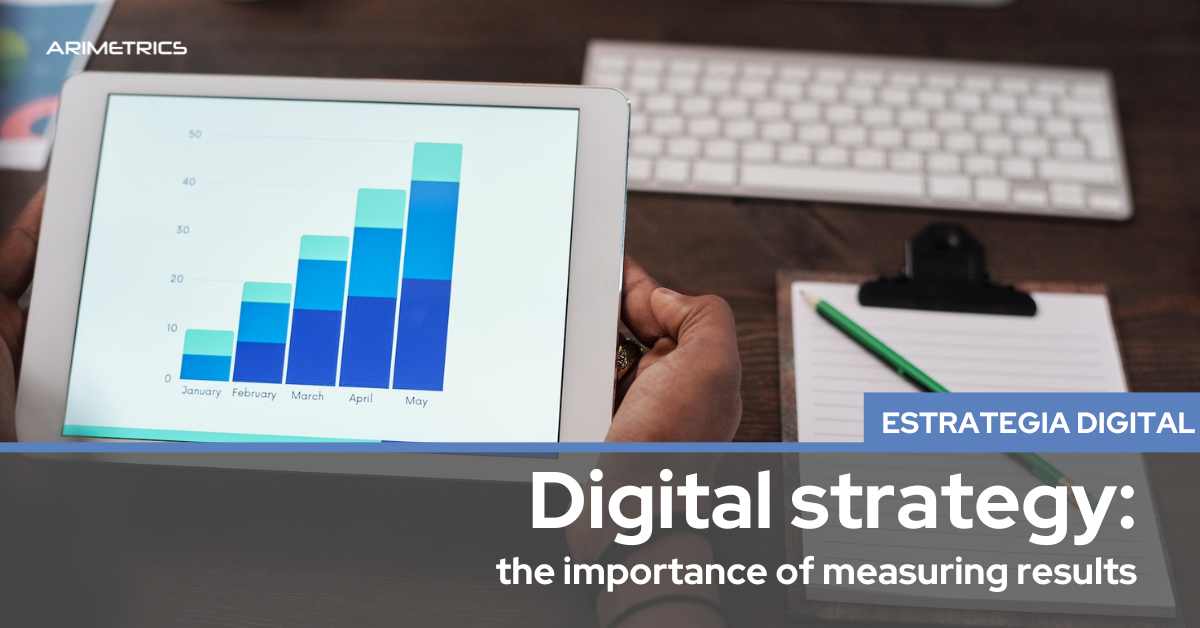In today’s digital world, businesses are increasingly relying on effective digital strategies to achieve their goals. However, it is not enough to implement digital strategies, it is crucial to measure their success and performance to ensure their effectiveness and make continuous improvements. In this post, we’ll explore the importance of measuring the success of your digital strategy and provide you with practical tips on how to do it. From setting clear goals to selecting relevant metrics and using analytics tools, you’ll learn how to evaluate and optimize your digital strategy to drive business growth.
Table of Contents
Importance of measuring the success of your digital strategy
It’s crucial to measure the success of any digital marketing strategy, including email marketing, lead generation, and LinkedIn efforts, to know if the tactics used are working. The KPIs, such as the number of clicks and the number of leads generated, are fundamental to evaluate the performance of the actions. In addition, the content strategy and digital marketing plan They should be checked regularly to know if they are attracting the target audience and generating the desired impact on the brand. Measuring success will allow you to adjust and improve your marketing strategies to reach your goals. Here are several reasons why measuring the success of your digital strategy is essential:
- Performance evaluation: Measuring allows you to evaluate the performance of your digital strategy and determine if it is achieving the desired results. You can identify which aspects are working well and which need improvement.
- Informed decision making: The data collected gives you valuable insights to make informed decisions. You can identify areas of opportunity, adjust your focus, and allocate resources more effectively.
- Continuous optimization: By measuring and analyzing results, you can make continuous improvements to your digital strategy. This allows you to adapt to changes in the market, take advantage of new opportunities and optimize your efforts to obtain the best possible results.
- Justification of return on investment (ROI): Measuring the success of your digital strategy allows you to evaluate ROI and justify the investment made in digital activities. This is crucial to support decision-making and ensure the proper allocation of resources in the future.
How to measure the success of your digital strategy
Measuring the success of your digital strategy involves analyzing different digital marketing metrics, such as click-through rate, engagement, number of subscribers, and the ROI of your marketing campaign. SEO and keywords are fundamental in online marketing, and their effectiveness can be measured through various analysis tools. It’s important to be aware of changes and trends in the world of digital marketing to make sure your strategy is up to date and effective. Here are some key steps to measure the success of your digital strategy:
- Set clear and measurable goals: Define specific goals that you want to achieve with your digital strategy. For example, increase website traffic by 20% in the next three months. Setting clear goals will help you evaluate the success of your strategy.
- Identify key metrics: Determine the relevant metrics that will help you measure progress toward your goals. This can include metrics such as website traffic, conversion rate, social media interactions, bounce rate, among others. Make sure you choose metrics that are aligned with your goals and meaningful to your business.
- Use analysis tools: There is a wide range of analytics tools available that allow you to collect and analyze data. Some of the most common tools include Google Analytics, Facebook Insights, social media monitoring tools, and marketing automation software. Research and choose the most appropriate tools for your needs.
- Follow up regularly: Establish a schedule for reviewing and analyzing the collected data. Regularly track metrics and compare results to your set goals. This will help you identify trends, patterns, and areas for improvement.
- Perform tests and experiments: Conducts A/B testing and experiments to evaluate different approaches and tactics. This will allow you to gain insight into which strategies are most effective and help you optimize your digital strategy accordingly.
Examples of key metrics to measure success
To measure success in the sales and marketing arena, it is essential to consider key metrics. Among them, we can highlight the customer acquisition, the results obtained thanks to digital marketing, the number of leads and the number of visitors generated by marketing strategies. These metrics can be used to effectively measure the impact of sales and marketing actions and make necessary improvements and adjustments.
Choosing the right metrics will depend on your goals and the type of digital strategy you’re implementing. Here are some examples of key metrics you can consider:
- Website traffic: It measures the number of visitors coming to your website, as well as the most visited pages and the average length of visit.
- Conversion rate: It evaluates the percentage of visitors who perform a desired action, such as filling out a form, making a purchase, or subscribing to a newsletter.
- Social media interactions: Analyze the number of likes, comments, shares, and followers on your social media profiles.
- Customer retention: Measure customer retention rate to assess how many existing customers continue to engage with your brand and make repeat purchases.
- Cost per acquisition (CPA): Calculate the average cost of acquiring a new customer. This metric helps you evaluate the efficiency of your digital marketing efforts.
How to use data to optimize your digital strategy
To optimize your digital strategy, it’s essential to use the right data. You must know the most important metrics and closely follow each advertising action. If you don’t get the action you expected, you need to know how to know each customer and how to improve customer acquisition. The design of your page is also important, so you should monitor the number of users and develop a roadmap to improve the image of your platform. Using data will help you make informed and effective decisions in the future.
Once you’ve collected the data, it’s important to use it to optimize your digital strategy. Here are some actions you can take:
- Identify patterns and trends: Analyze data to identify patterns and trends. This can help you understand which tactics are working well and which areas need improvement.
- Make adjustments and experiments: Use the data collected to make adjustments to your digital strategy. For example, if a certain tactic isn’t generating the expected results, consider making changes or trying a new approach.
- Personalize the customer experience: Use data to personalize the customer experience and deliver relevant content tailored to their needs. This can increase customer satisfaction and improve the results of your digital strategy.
- Reports and effective communication: Create regular reports to communicate results and improvements made to stakeholders. This will help keep everyone informed and committed to the goals of the digital strategy.
Measuring the success of your digital strategy is essential to evaluate its effectiveness, make informed decisions and optimize your efforts. By setting clear goals, selecting relevant metrics, and using analytics tools, you’ll be able to collect valuable data that will allow you to continuously improve your digital strategy. Remember that the digital world is constantly evolving, so it is important to stay updated and adapt to new trends and technologies. By measuring and optimizing your digital strategy, you’ll be on the right path to success and growing your business in today’s digital environment.




